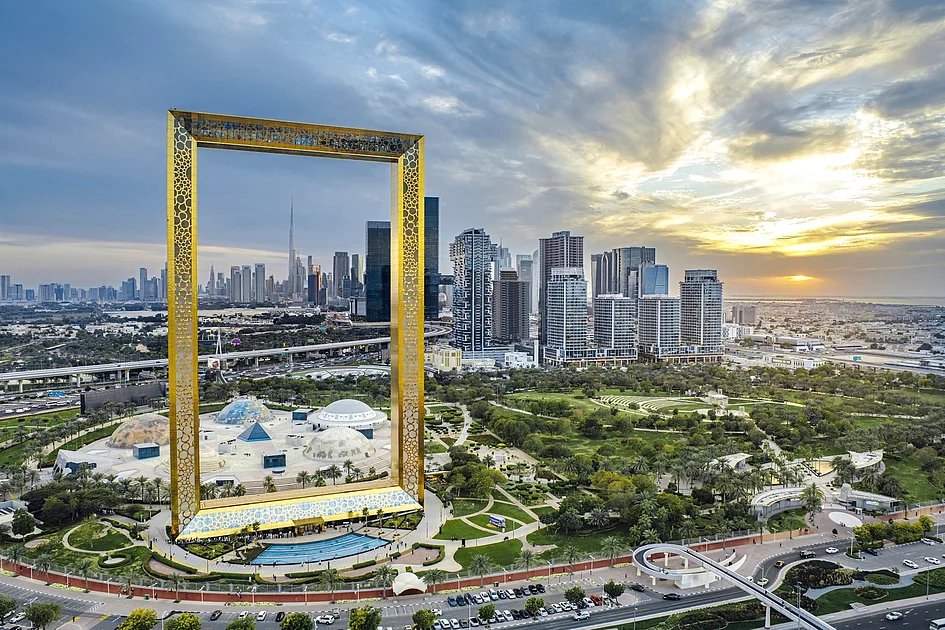What makes the UAE continue to stand out as one of the world’s most sought-after “bridge economies,” reinforcing its status as a destination of choice for global firms expanding their footprints?
The answer lies in a rare blend of strategic geography, business-friendly reforms, world-class infrastructure, and vision-driven leadership that has transformed the Emirates into a global hub for trade, finance, logistics, and innovation.
A new report by Standard Chartered, titled Future of Trade: Resilience, reaffirms the UAE’s growing appeal by revealing that 20 per cent of corporates globally are reviewing their supply chains through the country — a clear testament to its pivotal role in reshaping global commerce.
The study, which surveyed more than 1,200 companies across 17 countries with annual revenues above $250 million, positions the UAE among the world’s top six markets defining the future of international trade. The report highlights that global corporations increasingly view the UAE as a launchpad for accessing China, Africa, Asean, and the US, driven by its unmatched logistics network, diversified economy, and stable business environment.
It also found that 50 per cent of corporates from Saudi Arabia, Egypt, and India plan to expand trade and investment with the UAE, underscoring its growing influence in strengthening intra-regional partnerships and enhancing the Middle East–India corridor.
Mohammed Salama, regional head of client coverage for corporate and investment banking at Standard Chartered, said the UAE’s transformation into a global trade hub mirrors the success of its long-term diversification strategy. “The UAE’s rise as a global trade hub reflects the leadership’s vision to diversify the economy, strengthen resilience, and invest in world-class infrastructure. That vision is positioning the country at the centre of tomorrow’s trade corridors and attracting corporates worldwide to place the UAE at the heart of their supply chains,” he said.
This growing confidence comes as multinational firms rethink their operational strategies post-pandemic, adopting “China+1” or “China+Middle East” models to diversify sourcing and production bases. With its pro-business ecosystem, political stability, and logistical connectivity, the UAE is increasingly emerging as a natural alternative and complementary hub to traditional Asian and European supply routes.
According to data from the UAE Ministry of Economy, the country’s non-oil trade reached Dh2.6 trillion in 2024, up sharply from Dh2.23 trillion in 2022, driven by robust growth in re-exports and manufacturing exports. Its ports and airports — among the world’s busiest — serve as vital arteries for global commerce. Jebel Ali Port connects to over 150 destinations worldwide, while Abu Dhabi’s Khalifa Port and Sharjah’s Hamriyah Port continue to expand regional connectivity. The UAE’s aviation network, powered by Emirates and Etihad Airways, spans six continents and plays a crucial role in linking trade, logistics, and tourism.
The UAE’s attractiveness is further reinforced by its strong regulatory and investment climate. The country ranks first in the Arab world and 18th globally in the IMD World Competitiveness Index 2025, while foreign direct investment inflows surpassed $30 billion in 2024, according to Unctad, placing it among the world’s top 15 FDI destinations.
A major part of the UAE’s strategy to sustain this growth lies in Operation 300bn, an ambitious plan to boost the industrial sector’s contribution to Dh300 billion ($81.7 billion) by 2031. This push toward advanced manufacturing, green energy, and technology-based industries is complemented by Comprehensive Economic Partnership Agreements (CEPAs) with India, Indonesia, Turkey, and South Korea — opening vast new trade corridors.
Salama said the UAE’s role as a “bridge economy” is becoming even more significant. “As regional economies deepen their trade links, the UAE is playing a central role in connecting partners across the Middle East and South Asia. With its position linking the region to India, China, Africa, and beyond, the country is driving new flows that extend well past traditional sectors,” he said.
The UAE’s digital transformation further boosts its corporate magnetism. It ranks among the world’s top adopters of AI, blockchain, and fintech, hosting innovation hubs such as Dubai Internet City, Abu Dhabi Global Market (ADGM), and Dubai International Financial Centre (DIFC). These free zones have attracted over 1,400 multinational companies since 2022, according to EY’s Mena Investment Outlook 2025, citing the UAE’s ease of doing business, strategic location, and investor-friendly tax environment.
With more global corporates — from Microsoft and Siemens to Unilever and Schlumberger — establishing regional headquarters or innovation centres in the Emirates, the UAE’s evolution from a regional trade hub to a global business powerhouse is undeniable.
In a world where supply chain resilience, geopolitical neutrality, and digital readiness determine competitiveness, the UAE’s balance of vision, stability, and connectivity makes it a compelling choice for global corporations. The message from the data is unmistakable: the UAE is no longer just a bridge between East and West — it has become a world-class destination where the future of global business is being built.
